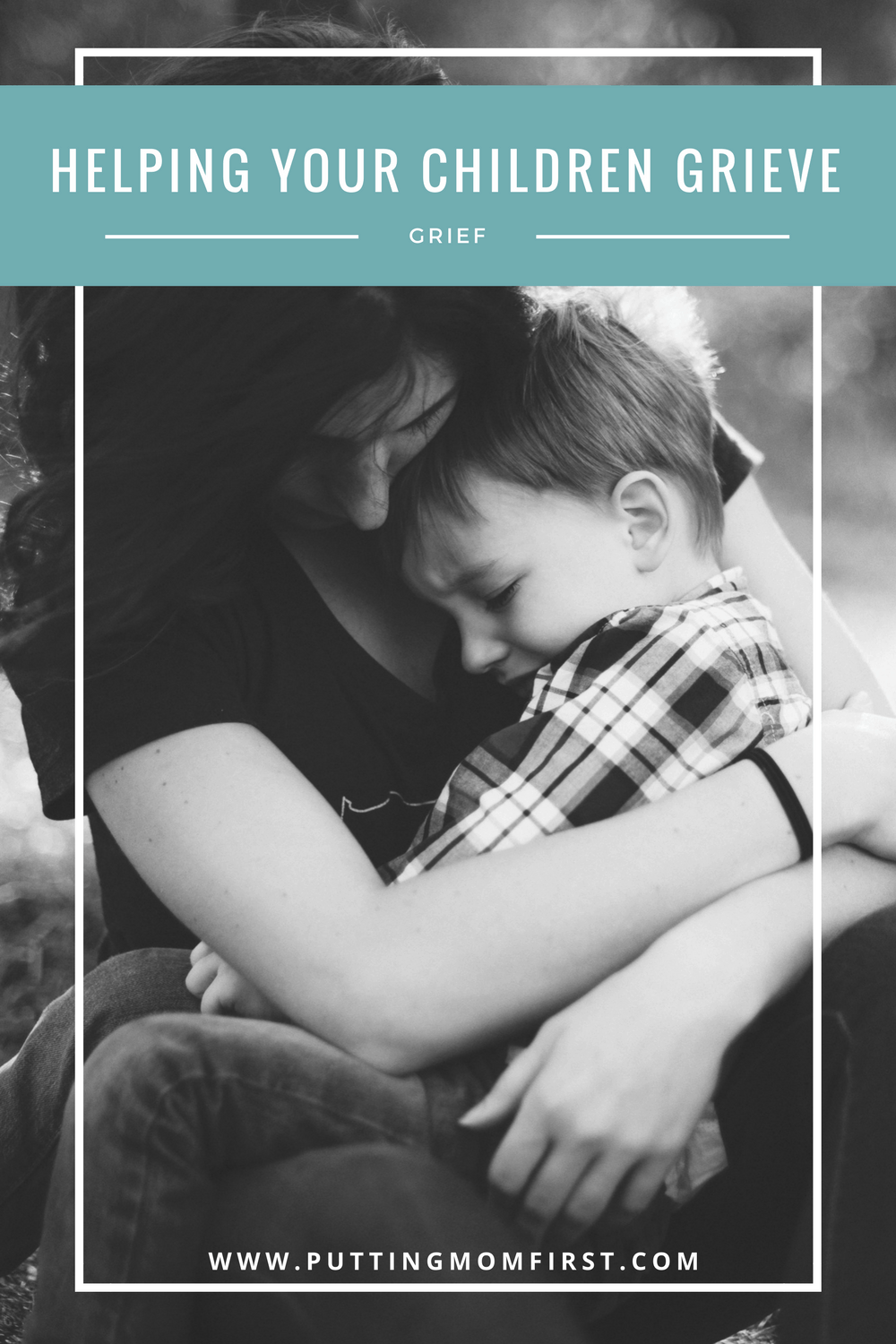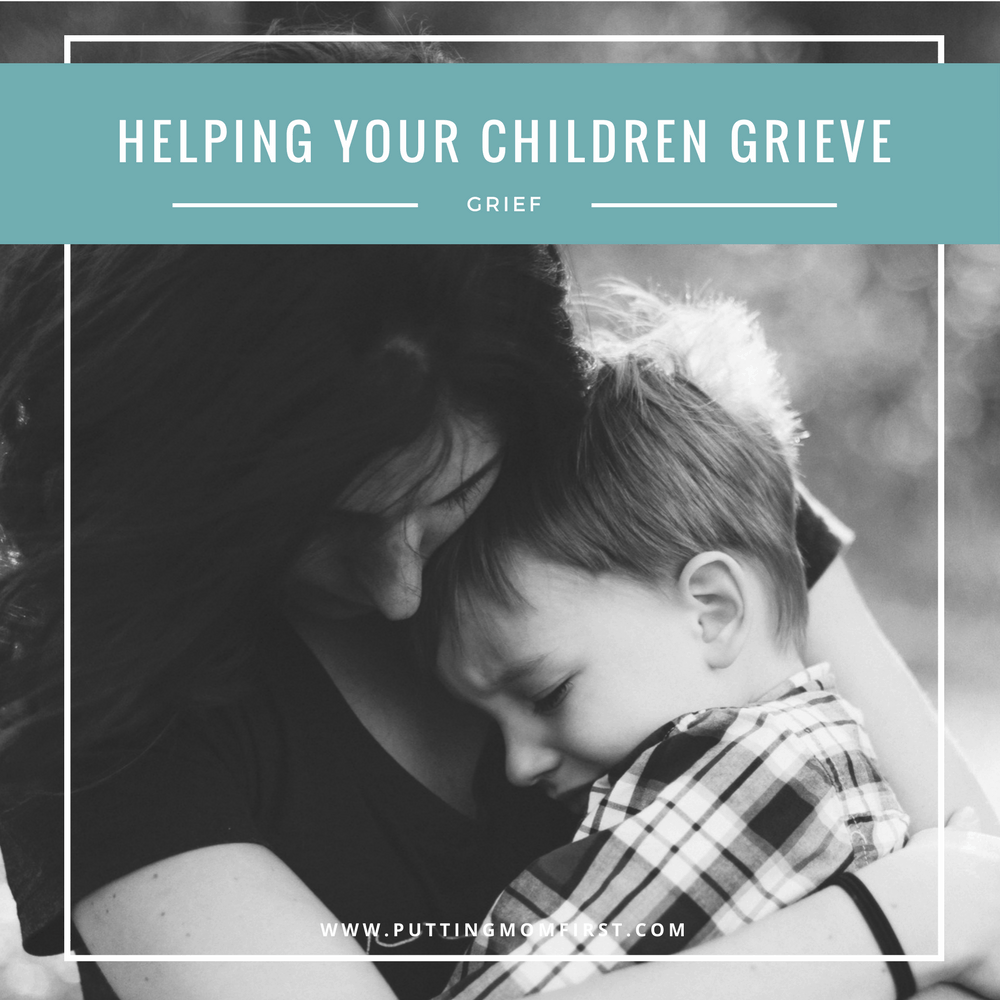As parents, we spend a lot of our time trying to protect our children from being hurt. Whether it’s in the playground when they are little, among their peers as they get older, or the physical dangers that can keep us up at night as they start going out with their friends.
When someone close to them dies, our initial instinct is to protect them too. Unfortunately, we can’t protect them from this pain. We need to help guide them through it, so they come out stronger for having known that type of love.
Helping your children grieve is one of the most important things you can do for them. At the same time, you are often going through a loss yourself. As you teach them these important tools, they will also serve as a reminder to you of the path you need to take for your own healing.
- Sad is not bad. So often, people feel that they are showing weakness through their tears. I often say that I feel like my heart is leaking out of my eyes. There is nothing weak about feeling sad. When someone you love dies, your sadness is a testament to having loved so deeply. Teach children to own those feelings. Grief is a process. Not an emotion unto itself. Honour the stages of that process.
- Talk about the person who died. Kids don’t know what they can say and what they can’t. They don’t want to upset anyone but this is new territory for them. You will set the tone for their new “normal”. If you hesitate to mention the deceased, they may feel that they can’t speak of them either – they don’t want to make you more sad. If they see you talking about your loved one, they will know that it’s ok to remember, reminisce and mourn.
- Look through old pictures. Help them remember the fun times they had with the person who died. What helped my kids was “5 happy things”. They would have to find 5 happy memories. It could be the smallest thing. The practice of finding these happy memories when you don’t feel happy is a tool that they can use throughout their life. It’s a practice. The more you do it, the more happy you will see around you in the present as well.
- Prepare them for what to expect. The unknown breeds fear. Give your kids a play-by-play of what to expect in the coming days. Whether it is a change of schedule in who picks them up, or a detailed plan of what to expect at the funeral, knowledge of what’s to come will help relieve a lot of anxiety.
- Listen to them. Just as you need to grieve and talk and cry and remember, so do they. Let them talk and just listen to them. There is no greater gift that you can give them at this time than your attention. It will be good for you too to be focused on one single, important task. It will give you your own understanding of them and you can support each other.
- Don’t shy away from honest language. Kids are a lot more black-and-white than adults. “She’s no longer with us” or “He passed away” don’t hold the same meaning to children. In fact, using proper language is important for adults too. “Grandma died today” may be among the most difficult words for you to say to your child, but the clarity of the words is unmistakable. There is no denial possible.
- Be open to any questions that they have. They may not know what to ask right away, but let them know that they can ask you whenever they think of something. Knowing that they have someone who will be honest with them is so important.
- Their reactions may surprise you. When I was 10, my older cousin died tragically of an asthma attack. It was sudden and heart-wrenching. As I sat at the first funeral I ever attended, the casket was wheeled in and I started giggling, uncontrollably. My mother just held me and rubbed my back, trying to get me to stop. I was so embarrassed. I knew it wasn’t appropriate, but I couldn’t help it. As an adult, I now know that it is a very common reaction. The emotions are so big. The laughter is almost a hysteria. You can’t control it because you have never let out this type of sadness before. All reactions that kids have are normal, from crying to laughing. Support them and show them that you understand that they are hurting.
As parents, our needs often come second to our kids. We have to be reminded to put ourselves first. Helping your child through grief is the one place, more than any other, that putting your children’s needs before your own actually help you place one foot in front of the other, at a time that you may not feel like getting out of bed.
Your children are worth getting out of bed and putting one foot in front of the other. Help them heal and you will find some healing in that too.

